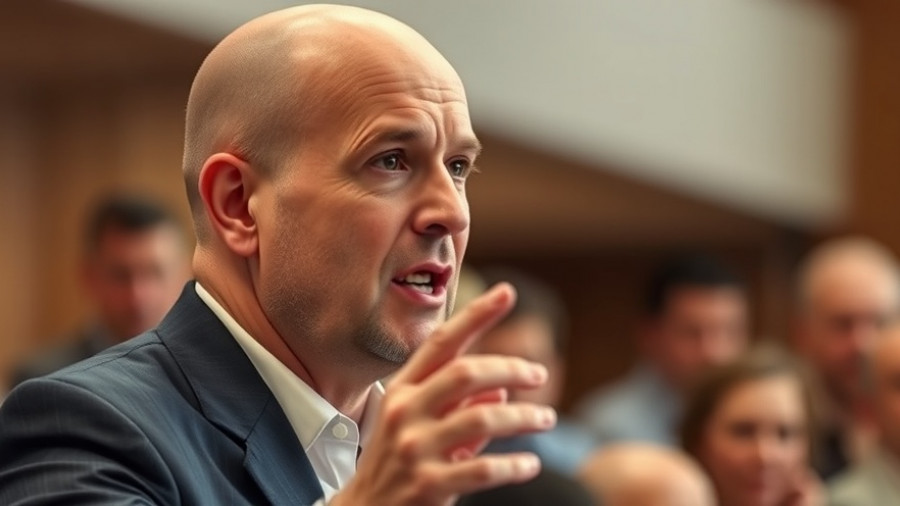
Kevin O’Leary vs. Work-Life Balance: A Cultural Shift?
Kevin O’Leary’s dismissal of work-life balance may resonate with his followers, but it raises important questions about the values of today’s workforce. The traditional nine-to-five structure is increasingly viewed as outdated, particularly by the younger generation who prioritize flexibility and personal fulfillment. O'Leary's comments reflect a mentality that valorizes relentless work ethic, often at the expense of personal well-being.
Understanding the Pushback Against Hustle Culture
The glorification of hustle culture, championed by figures like O’Leary and Mark Cuban, seems to clash with the reality faced by the majority of working Canadians today. A significant number of employees find themselves overwhelmed by stress and burnout rather than inspired to work harder. According to recent statistics, nearly 36% of the nation’s workforce is grappling with excess stress and anxiety due to overwork and lack of support. This highlights a divide between idealistic views of success and the more practical, often difficult realities of day-to-day work life.
The Mental Health Implications
With mental health issues on the rise, O’Leary's perspective could be viewed as dangerously out of touch. The reality is that a significant percentage of Canadians report that job-related pressures negatively impact their mental well-being. As the workforce becomes more aware of the importance of mental health, the desire for environments supporting a work-life balance naturally grows. Prioritizing mental health is becoming as relevant as improving productivity in the workplace, leading many to question whether the outdated hustle mentality is sustainable.
What Today’s Workers Want
A recent survey revealed that 52% of Canadian workers would be willing to accept a 20% pay cut for a better quality of life. This sentiment illustrates a dramatic shift towards seeking more fulfilling and less stressful work environments. Many individuals are looking for ways to balance professional obligations with personal lives, demonstrating a strong desire for both financial security and emotional well-being.
Strategies for a Healthier Work-Life Balance
Embracing flexible work arrangements can greatly enhance one’s quality of life. Most employees are now exploring ways to decrease their hours rather than work longer days. By acquiring new skills or transitioning careers, professionals can earn more without extending their working hours. The idea is to work smarter, not just harder.
A Future Reimagined: The Importance of Balance
While O’Leary’s approach emphasizes hustle, the tools and techniques being embraced by modern workers focus on creating meaningful lives outside of work. Employees are utilizing technology not only to succeed at their jobs but also to cultivate their personal lives. As remote work continues to change the landscape of employment, advocating for a healthy work-life balance should become a priority for employers keen on retaining talent.
Creating a Personal Action Plan
For those seeking to enhance their work-life balance, consider these actionable steps:
- Evaluate your current work situation: Identify stressors and think about potential adjustments.
- Seek opportunities for professional growth: Whether through training or mentorship, invest in your skills to open new paths.
- Consider flexible job arrangements: Explore opportunities that allow you to choose your hours or offer remote work.
Final Thoughts
While industry leaders like O'Leary promote a hustle-first approach, the clear message from current employees is that balance is crucial for health and happiness. As workplaces adapt to new demands, championing work-life balance may not only benefit individual employees but could enhance productivity and workplace morale as well. It’s time for a cultural shift where personal well-being is viewed as integral to professional success.
 Add Row
Add Row  Add
Add 




Write A Comment